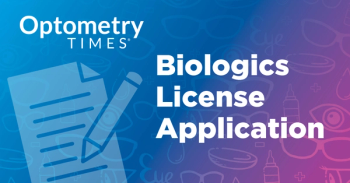
Blog: Why medical coding is a big deal for ODs
The views expressed here belong to the author. They do not necessarily represent the views of Optometry Times or Multimedia Healthcare.
I’ve been writing and lecturing on medical coding for so long that, as one person put it, “John has probably forgotten more about this subject than most know about it.”
Whether that statement is true or not, who knows? I was recently asked a question that inspired this blog post.
I was approached by an OD who has been in practice for less than a decade and who operates a full-scope, “medical-based” optometric practice. He told me that he simply uses “whatever” codes he wanted when performing examinations and procedures, and that he couldn’t figure out what the big deal was about this stuff.
“Who cares what codes we use?” he asked. “Nobody pays attention to this. Besides, we don’t get paid enough for what we do, so I do what I can to boost my income.”
My comments about compliance were dismissed with a perfunctory wave of the hand, and that was that.
Coding not a priority
I realize that many of the colleges and schools of optometry have minimized this topic in their curricula because there isn’t enough time to fit everything into four years, and post-graduate courses can be taken.
Worse yet, the Association of Regulatory Boards of Optometry (ARBO) and Council on Optometric Practitioner Education (COPE) classify anything related to medical coding and medical record compliance as practice management, thus relegating it to a status where most states allow only a few hours per year to count for continuing education (CE) requirements.
Coding properly is not a way to “build or enhance your business”, but is instead based upon clinical care, ethics, and jurisprudence. It is not a scheme to generate revenues.
This young practitioner certainly did not understand how serious his assumption was. Not knowing what you do not know can be dangerous.
Medical coding and medical record compliance are the foundation of every practice. In fact, it is not an option to do it right; it is the law of the land.1,2
As licensed practitioners, ODs have a duty and obligation to follow the rules and guidelines of both the current procedural terminology (CPT) and international classification of diseases (ICD) systems, regardless of third-party insurance accepted.
To add fuel to the fire, there is a notion that if ODs do not bill insurance for their services, they are exempt from coding things properly coding and appropriately maintaining the medical record. This is not true.
Obligation and duty
Let me put it into perspective:
Each service ODs provide is described in detail by or accommodated for in the CPT. ODs have the obligation and duty to use the most specific and accurate code in the CPT matching the services and procedures they have performed, and to follow the definition of those codes to completion.
With respect to ICD-10, ODs also have the obligation and duty to code a patient’s diagnosis to the highest level of specificity-not just get close, but to be accurate and truthful.
After all, ODs are affecting an individual’s personal medical record and-if the diagnosis is inaccurate-possibly be inappropriately impacting other areas should the diagnosis be inaccurate.
Related:
It’s about trust
There is an implicit establishment of trust that exists among a patient, a provider, and in most cases, a carrier.
A patient trusts that his OD, as the physician, will provide the level of care and ancillary tests or procedures he requires based upon presenting history, symptoms, or clinical findings. Not more care than he requires, and certainly not less care.
A carrier requires that ODs know and follow its policies with respect to the provider agreement; follow the rules, guidelines, and policies of the CPT and ICD; and demonstrate through medical records that every test performed was medically necessary.
Think of it this way:
You don’t send your medical record to the insurance company or to the patient to demonstrate that you coded properly. In fact, your medical record never leaves the boundary of your office unless requested by the patient, a carrier, an attorney, or another provider. The only things representing what you have done and provided for the patient are the codes representing those services and products that you have made part of the medical record.
Everyone trusts that ODs are being honest, accurate, and up to date with the codes used on any patient encounter. It is implied that when a code is used, the medical record will clearly demonstrate that the service, procedure, or materials provided to the patient are in full compliance with each respective definition.
Getting close doesn’t count-precision and accuracy does.
Why it matters
A malpractice attorney can use billing records (codes submitted for payment) to demonstrate the services provided, then match those with the clinical record to verify if those services were required, communicated to the patient, and the definition fulfilled.
An insurance company can request records to make sure the services it has paid for were demonstrated to be medically necessary within the parameters of its policies and request a refund (plus interest and penalties) if these were not properly compliant.
Medical coding and compliance is a big deal. It is not practice management or a scheme to get paid more-It is the only way ODs are able to properly describe and define the services, procedures, materials, and diagnoses that they provide to patients.
Coding is the law. It requires ethical behavior, honesty, CE, and diligence in keeping up with changes. It is optometry’s obligation and duty to be accurate, regardless of who is paying the bill.
Coding is ODs’ only way to communicate to the outside world what services or procedures they have conducted and what ODs see clinically with patients. It will be of increasing importance to the profession as ODs see electronic/digital medical records morph from being practice-centric to patient-centric.
It is a big deal.
References:
1. CPT Professional 2019 (CPT/Current Procedural Terminology [Professional Edition]). American Medical Association. 2018. Print
2. Centers for Medicare and Medicaid Services. Avoiding Medicare fraud and abuse: A roadmap for physicians. Available at: https://www.cms.gov/outreach-and-education/medicare-learning-network-mln/mlnproducts/downloads/avoiding_medicare_fanda_physicians_factsheet_905645.pdf. Accessed 4/12/19.
Newsletter
Want more insights like this? Subscribe to Optometry Times and get clinical pearls and practice tips delivered straight to your inbox.













































